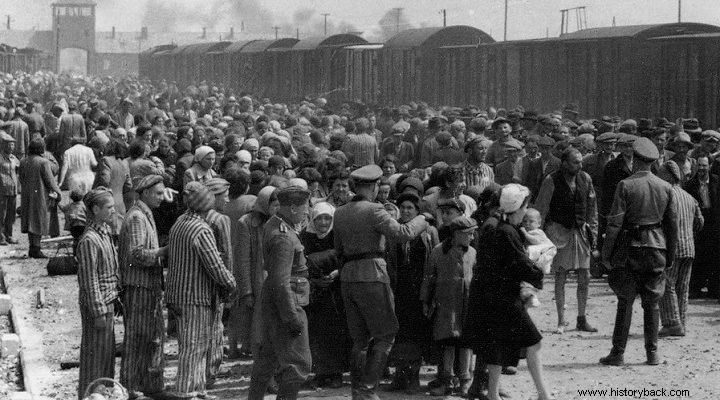
"My dear child, I am writing you these lines with eyes full of tears and a heart frozen with terror," Sarina Saltiel wrote to her son Maurice on March 17, 1943, two days after his departure. of the first "death train" to Auschwitz-Birkenau. Two days after that first whistle blew at the old railway station of Thessaloniki, which marked the countdown for the city's once-thriving Jewish community.
Seventy-eight years have passed today since the first mission of death in the camps-hells of the Nazi death machine and through this letter of Sarina Saltiel - one of the many that she collected, studied and included in her book "Don't forget me" (published by Alexandria ) the historian Leon Saltiel- vividly revives all the "progressively growing agony, the work of an experienced sadist", that the Jews of Thessaloniki felt and also the life in the ghetto, shortly before the violent expulsion of the Jews of Thessaloniki.
"Now the worst thing is the displacement," Sarina Saltiel emphasized, describing the emotions that overwhelmed her and the thousands of Jews in the city:"Our blood freezes every moment, our hearts beat to break, we have to give up everything, country, parents, to part with each other, friends and goods, and leave with only a sack on our back. We have no right to take a single suitcase." And he went on to describe the hours and days after the first mission:
“The first train has already left, to what destination? We ignore it. The second will leave today. On the day of departure the people in a frenzy burn documents, money, break their furniture with the screams of mortally wounded beasts, then abandoning the fruits of their labor they leave piled like sardines into cattle cars, and treated with less respect than they were.'
The anxiety for the unknown, the need for these people to draw strength from somewhere and also the longing for a miracle alternate from paragraph to paragraph, with the dominant question - why all this is happening - hovering in the atmosphere. "I don't know what awaits me tomorrow morning." If we are displaced I will try to be strong, endure all the hardships, just to have the happiness of seeing you again one day. In difficult times your form will give me strength, I will say "no", let's not let them finish us", writes Sarina Saltiel to her son, while at another point she is looking to find relief in faith:"God does not will leave us. He can perform a miracle at any moment. There are so many souls begging him".
"I am searching to find in my conscience what evil I have done to suffer like this, I swear to you my dear child that I cannot find anything. I was always kind and generous to everyone", she says, in an attempt to answer her own "why". An attempt that was never completed as Sarina Saltiel and her husband were evacuated on the 4th expedition of the "death trains", on March 23, 1943, and never returned.
On the occasion of today and looking back on his research for the book, where in addition to Sarina Saltiel's letters the letters of two other Jewish mothers to their children are published, Leon Saltiel characterizes the death shipments to Auschwitz as a key point because , as he notes, all of Thessaloniki knew. "The horror images of the missions were known throughout the city," he notes characteristically, pointing out that any reactions were limited to the first phase and mainly concerned the transport conditions.
He also refers to an article of the time (March 1943) of the newspaper "Megali Hellas", entitled "The persecution of the Jews", where - among other things - the situation is described in a clear way:"The conqueror is exterminating the European peoples with unprecedented rage . But where his destructive fury crossed the border of real sadism is the persecution of the Jews. Some time ago the Jews of Thessaloniki were forced to wear a special badge in a visible place to distinguish them from the natives. Forced labor, beatings and executions were almost daily news.
"However, as we are informed, they were evicted from their homes and gathered in concentration camps where they were only given bread of around 40 drams per day. A few days ago it was decided to send them to Poland in closed wagons. The first train of 3,500 people left Thessaloniki via Poland on March 15. In order to get an idea of the journey, it is enough to tell you that out of 40 Jews who were placed in a closed carriage for a journey from France to Poland, only 40 came out alive" (s.s. the spelling of the original was preserved). From March 15 to August 10, 1943, approximately 43,000 Jews of Thessaloniki were forcibly transported to Auschwitz. Of these, less than a thousand returned alive to recount the horror and keep the memory alive...
SOURCE:APE-ME
